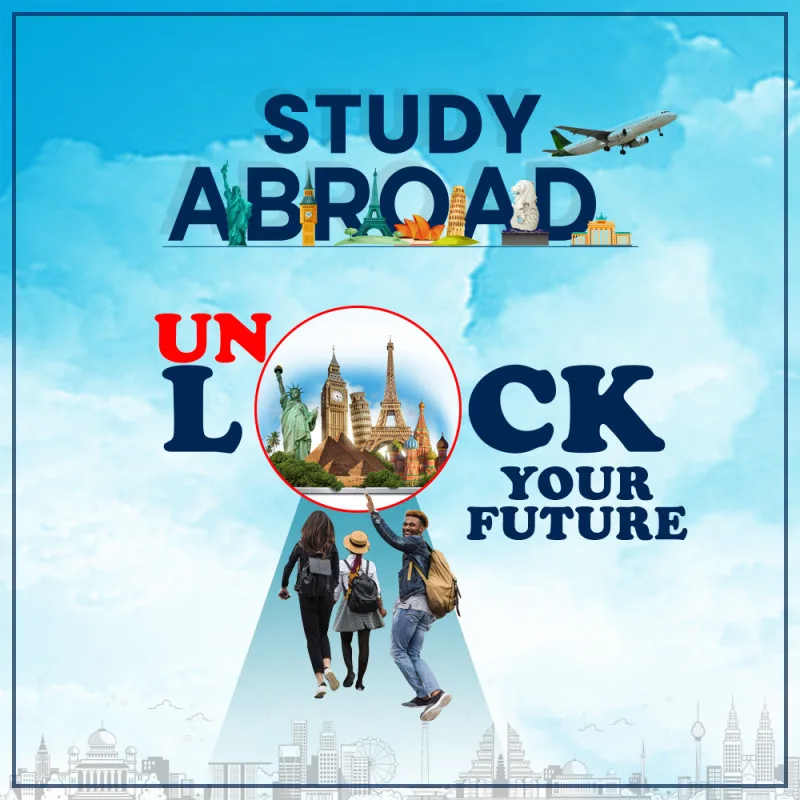
1. What are the various methods of financial support for my studies abroad?
There are several ways to support your studies abroad, including:
- Education loans
- Sponsorship by individuals or organizations
- Scholarships
2. Which countries are popular for pursuing higher studies abroad?
Popular countries for higher studies in fields like Engineering, Business, IT, and Hospitality include the UK, Canada, Australia, New Zealand, Germany, Sweden, and Norway. Additionally, European countries, China, Russia, and the Philippines offer quality and cost-effective courses, especially in medicine.
3. Is studying abroad expensive?
While studying abroad may be more expensive compared to studying in your home country, some countries offer education at costs similar to those in India. Education loans and scholarships have made studying abroad more accessible in recent times.
4. How can I avail an overseas education loan for studying abroad?
Availing an education loan for studying abroad is a common trend. The process varies between banks, and eligibility depends on factors such as the chosen program and loan amount. Contacting your nearest bank or Omnibus counselors can provide more detailed information.
5. How can I secure scholarships?
Many countries offer scholarships to international students based on their academic profile. These scholarships are competitive and depend on academic achievements. Details are usually available on university websites, and Omnibus can assist in identifying suitable scholarships based on eligibility.
6. Can I work part-time during my studies abroad?
While most countries allow international students to work part-time during their studies, some, like Singapore, the US, China, Bulgaria, have restrictions on legal part-time work.
7. What are the post-study job prospects abroad?
Many countries offer stay-back options for post-study employment. Co-ops and internships during studies enhance networking and job search opportunities after completing the course.
8. What are the PR prospects abroad after higher studies?
Countries such as Canada, Sweden, Germany, New Zealand, and Australia encourage students to explore Permanent Residency opportunities after completing their studies.
9. Can my family accompany me during and after my studies abroad?
Certain countries, including the UK, New Zealand, Australia, and Sweden, allow family accompaniment. However, work rights for dependents are subject to the laws of each country.
10. How does Omnibus support my studies abroad?
Omnibus provides counseling, assistance in choosing study options, application support, help with bank loans and scholarships, guidance on visa documentation, and post-landing services for a smooth transition.
11. What documents are required for getting an offer letter for higher studies abroad?
Institutions typically require certified copies of the passport, academic documents, work experience certificates, language proficiency certificates (IELTS/TOEFL/PTE-A), and a Statement of Purpose (SOP).
12. What should I do if an institution rejects my application for a particular program?
If an institution rejects your application, you can reapply with additional supporting documents or explore alternative programs and institutions with the assistance of Omnibus.
13. What documents are needed for applying for a visa?
Required documents for visa applications generally include the offer letter, passport, proof of English proficiency, academic documents, work experience documents, financial documents, CV, statement of purpose, photos, medical clearance, and police clearance certificate (PCC).
14. Can I pursue MBBS abroad?
Yes, various countries, including Bulgaria, offer MBBS studies for international students at a reasonable cost compared to studying in the UK, USA, Australia, or India.
15. What is the average amount needed to pursue studies abroad?
The total cost, including tuition fees, living expenses, air tickets, and visa fees, may range from 10 lakhs to 30 lakhs, depending on the country, institution, and chosen program.
16. What is the cost of living during studies abroad?
Living expenses vary by country. The average expenses for the UK, New Zealand, Canada, and Germany are provided.
17. Will there be a financial loss if my visa is rejected?
In the event of a visa rejection, institutions may refund tuition fees after deducting administrative charges. However, visa fees are typically non-refundable.
18. What are the options if my visa is rejected?
You can reapply with additional documentation, explore study options in other countries, or seek assistance from Omnibus for refunding tuition fees.
19. What post-landing assistance can I expect from Omnibus?
Omnibus coordinates with institutions to provide pick-up and accommodation assistance. The travel desk assists with post-landing support, including finding jobs and legal matters.
20. How can I stay in touch with Omnibus?
You can join our Facebook and Instagram pages or contact the counseling desk through phone, email, or other social networks.
21. Can I visit my home during my studies abroad?
Most countries allow students to visit their home country during vacations, especially with a multiple-entry visa.
22. What entrance tests are demanded by institutions?
Graduate Record Examinations (GRE), Graduate Management Admission Tests (GMAT), IELTS, TOEFL, and PTE are common entry tests, while IELTS/TOEFL/PTE are popular English proficiency tests.
23. What is IELTS/TOEFL/PTE, and why are they important?
IELTS, TOEFL, and PTE are English language tests ensuring students can cope with studies in English-speaking countries. They assess language proficiency for academic or general purposes.
24. Are English proficiency tests mandatory for higher studies abroad?
Most English-speaking institutions require English language proficiency tests. However, some institutions may assess 12th-grade English scores or conduct tests/interviews for admission.
25. What is the average score required for higher studies abroad?
Average English proficiency and academic score requirements vary by institution, course, and level. Generally, a score below 50% may not be advisable for admission abroad.
26. Which programs yield higher job prospects for international students?
Professional programs in engineering, business/MBA, and medicine often have high job prospects. Choosing programs aligned with passion and academic profile is crucial for post-study employment.
27. How can I identify job-oriented programs?
Omnibus counselors assist in identifying job-oriented programs with or without internships, matching your academic, passion, and financial backgrounds.
